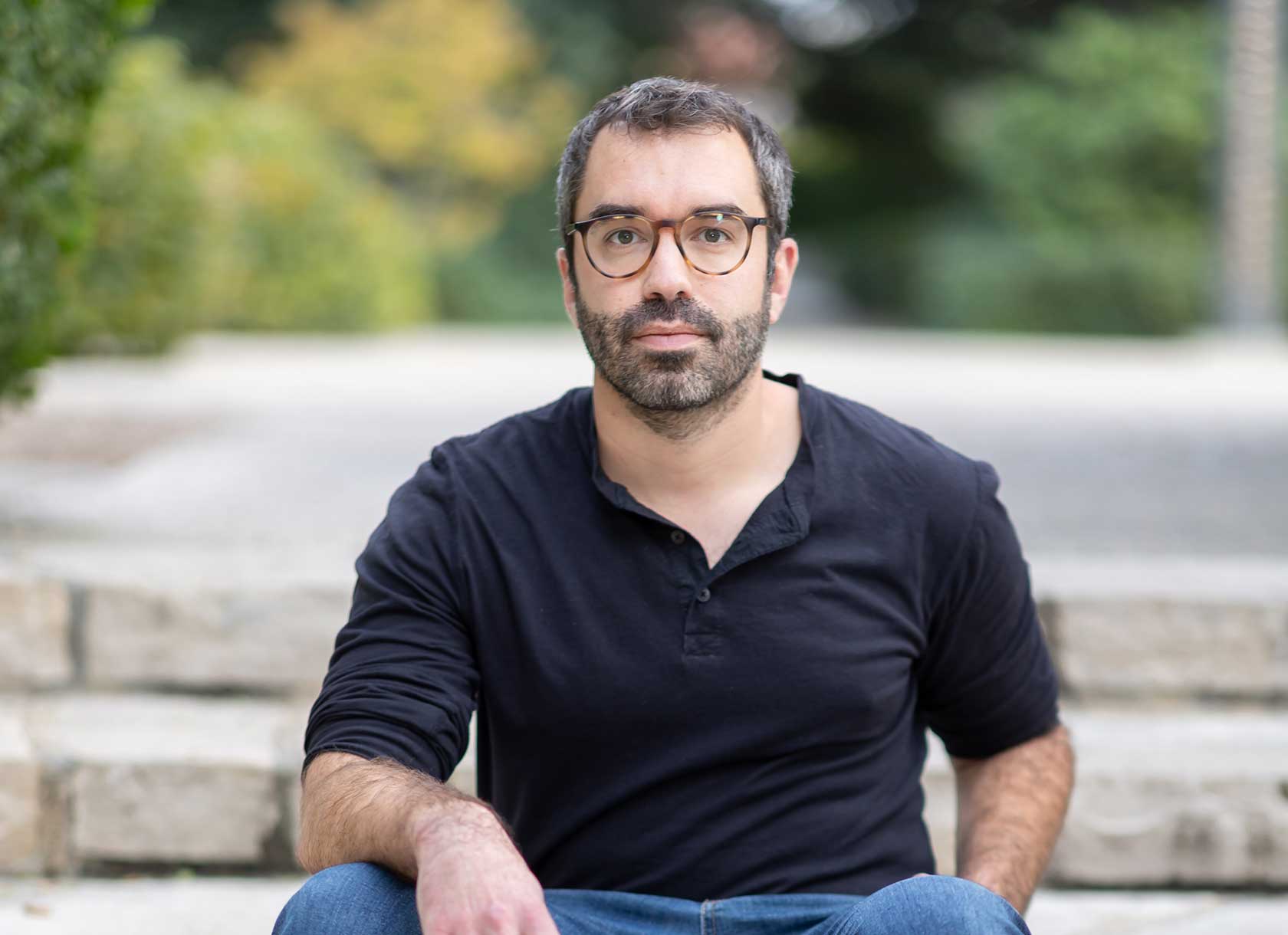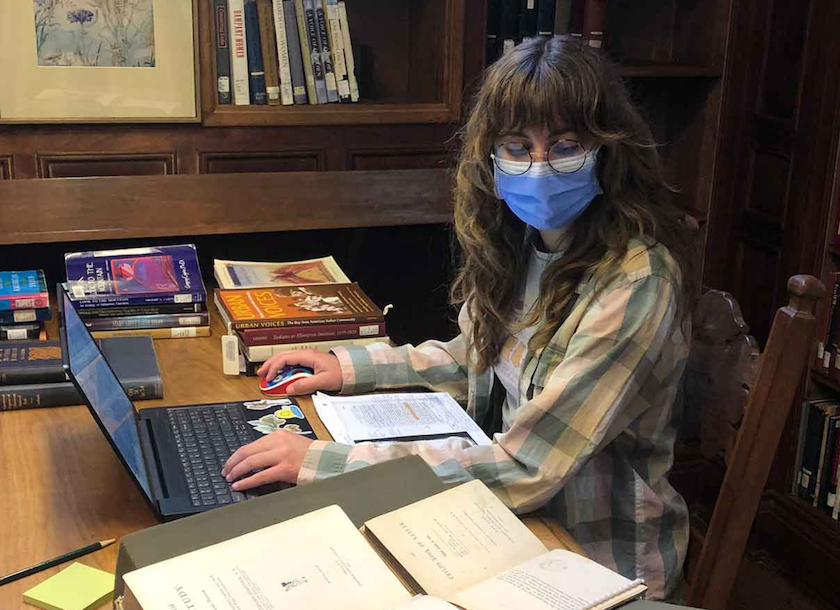
By Nichola Monroe ’27
It’s a rewarding time to be an English major at Scripps College. After a series of retirements and new hires, the Department of English has undergone a generational shift and restructuring of the major—but the program has always enjoyed consistent popularity.
Why, one may ask? Aside from Scripps attracting a student body with a love for reading, an English degree has broad professional applicability. Individuals with English degrees excel in diverse fields, including politics, law, academia, medicine, and beyond. Though a liberal arts background will teach all students to dissect texts, write, and think critically, English degrees clearly signal these skills to employers and emphasize attention to detail, analysis, and persuasive communication.
“A lot of employers will be drawn to English majors,” explains Associate Professor of English and Chair of the English Department Thomas Koenigs. “They know they will be able to read and write well. Those are not skills that will have of shelf life—AI notwithstanding, I don’t think there is any kind of technology that could render those skills obsolete.”
Finding Your English Major Track at Scripps: Critical Analysis or Creative Writing
Scripps’ Department of English is distinct because it houses both English and creative writing programs. The department’s philosophy is that critical analysis and exceptional writing are inherently intertwined—thus, English majors at Scripps excel at both. The restructured major now consists of two tracks: a more traditional focus on critical analysis or an emphasis on creating writing, with students typically taking classes in both areas. “I think those changes have been overwhelmingly positive,” says Koenigs.
I can’t imagine a better English department. The amount of attention professors give to every student, the thought they put into discussing the books, the books they put their syllabus and how we talk about them is just incredible. – Isabel Evans ’23
Both tracks require two introductory courses, which, while initially may feel like an obligation, are well-loved by students. In addition to a seminar in literary theory, students may explore a variety of electives to fulfill their English major requirements.
The creative writing track offers workshop-based classes in fiction, poetry, and creative nonfiction writing. The critical analysis track boasts a docket of immensely popular literature classes, from “ye olde stuff” like Dickens and Milton, as Associate Professor of English Tessie Prakas likes to put it, to modern American novels and niche courses like Writing from the Middle of Nowhere. Some of the department’s most popular courses include Koenigs’ personal favorite to teach, American Women Writers, and an advanced seminar on the beloved Virginia Woolf.

Associate Professor of English and Chair of the English Department Thomas Koenigs
Because of the broad range of study offered within the department, the program attracts a large percentage of Scripps’ student body. English students form a community and deep camaraderie as they explore Shakespeare, write fiction, and pursue original research for their theses.
Scripps’ English program has an anomalous structure to the College’s thesis requirement. Seniors enroll in a thesis seminar alongside an upper-level seminar on a subject of interest, ultimately producing a thesis of 30–35 pages to serve as a writing sample for job and graduate school applications.
“We really believe in [the structure] pedagogically. We think it allows students to produce the highest quality work,” says Koenigs.
Majoring in English at Scripps: The Student and Alum Perspective
The myth of the unemployed English major is just that: a myth.
Leveraging a unique resource at Scripps—the special collections at Denison Library—double English and environmental analysis major Isabel Evans ’23 surveyed the library’s vast collection of original manuscripts for her thesis. She settled on studying the earliest manuscript of Emily Dickinson’s handwritten poem, “Further in Summer than the Birds,” ultimately arguing that this early overlooked version had contained new, meaningful implications about Dickinson’s work. Evans is now pursuing a career as a rare books librarian in London, England.
“I’ve been able to take being an English major and translate it into a material manifestation of the discipline,” she reflects. “English very much informed the career I went into—I didn’t want to do something just because it was going to make me money, I wanted to do something that I loved. That is very much what I am doing and that started with being an English major at Scripps and writing my thesis.”
Majoring in English also enhances studying other disciplines, Evans notes, and helps with crafting compelling arguments in any subject.
“When I was at Scripps, people would say my majors didn’t go together at all, but they completely complement each other,” she says. “We all have wide-ranging interests that fit together in this beautiful puzzle.”
Scripps English majors are also excited to read, discuss, become better writers, and gain insights into the texts and traditions that inform our society today. But, more than any skill, students say that what sets the College’s English program apart is its professors.

English major Isabel Evans ’23 researching her thesis in Denison Library
“I can’t imagine a better English department. The amount of attention [professors] give to every student, the thought they put into discussing the books, the books they put their syllabus and how we talk about them is just incredible,” Evans says. “Scripps faculty in general are just truly special, and that’s what I think makes the Scripps experience very unique—getting to have those connections with your professors who are absolutely brilliant.”
“Because Scripps is a small liberal arts school, the fact that in class you are able to ask a lot of questions is super productive,” adds Jackie Owens ’27, who originally considered a major in psychology before choosing English. “At a bigger school, you might not get the time with a professor. The professors are what make the English department so great.”
For the intrigued, no preparation or advanced background is necessary to explore this program—just a love for reading and a openness to engage in academic discourse.
“I think if someone is reading this and is considering [majoring in English], I’d say go for it,” says Owens. “You don’t have much to lose. I definitely don’t regret it.” Advice from Koenigs follows suit.
“Anyone who is here at Scripps, we welcome you to the English major and encourage you to explore our classes,” he says. “No pre-reqs.”

